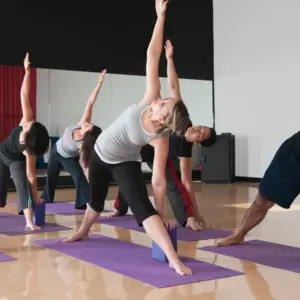

Exercise, Energy and Movement

Exercise, Energy and Movement
Exercise for Immune System Health
Sports immunologists have long studied the impact of exercise on the immune system. Research shows that while exercise undoubtedly affects the body’s ability to fight off disease, both individual factors and the characteristics of the exercise play a role in immune response.
Among the individual factors that come into play are metabolism, nutritional status, hormonal considerations, and environmental factors. Exercise characteristics that may affect immune response include the intensity and duration of the exercise, exhaustion level reached, and the type of exercise.
Clinical evidence shows that intense exercise, like high-intensity interval training (HIIT) or sprinting, will immediately boost the immune system but suppress it in the 24 hours after the exercise when the body may be more susceptible to pathogens. While high-intensity exercise has metabolic and cardiovascular benefits, it’s important to give the body time to rest and recover during the period of immune suppression.
Moderate-intensity exercise, practiced regularly, does not result in post-exercise immune suppression. Moderate exercise enhances the body’s innate immune response, reduces risk of chronic disease, and fights the effects of aging on immune function. The Harvard T. H. Chan School of Public Health defines moderate intensity exercise as that which will raise a person’s heart rate to 50-70% of their maximum heart rate.
Exercise may spark a stress response, which can cause a rise in inflammatory markers. Eating a complex carbohydrate, such as fruits, vegetables, or a whole-grain snack, post-exercise can help attenuate the inflammatory response.
Experts recommend avoiding reaching a level of exhaustion during exercise, bearing in mind personal fitness will determine when this level is reached. As one embarks on an exercise regimen, the body’s organs will become more efficient at using energy and what was once difficult will increasingly become easy.
The American Heart Association recommends at least 150 minutes of moderate-intensity exercise a week but says that five hours a week will result in even greater health benefits.
REFERENCES
Riley, C. (2020, December 15). 6 principles to follow to build an immune-boosting exercise routine. American Fitness Professionals Association. https://www.afpafitness.com/blog/6-principles-to-follow-to-build-an-immune-boosting-exercise-routine?


 By
By







